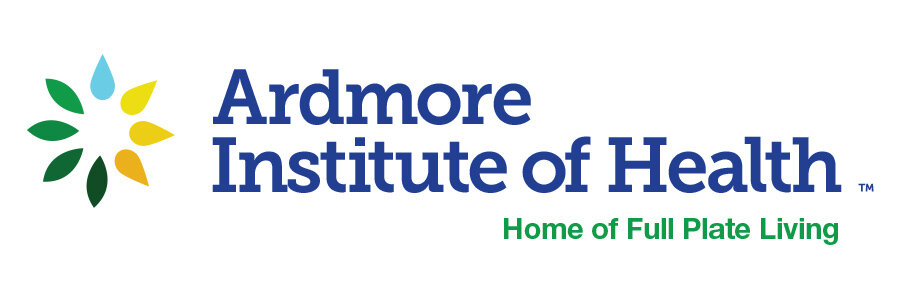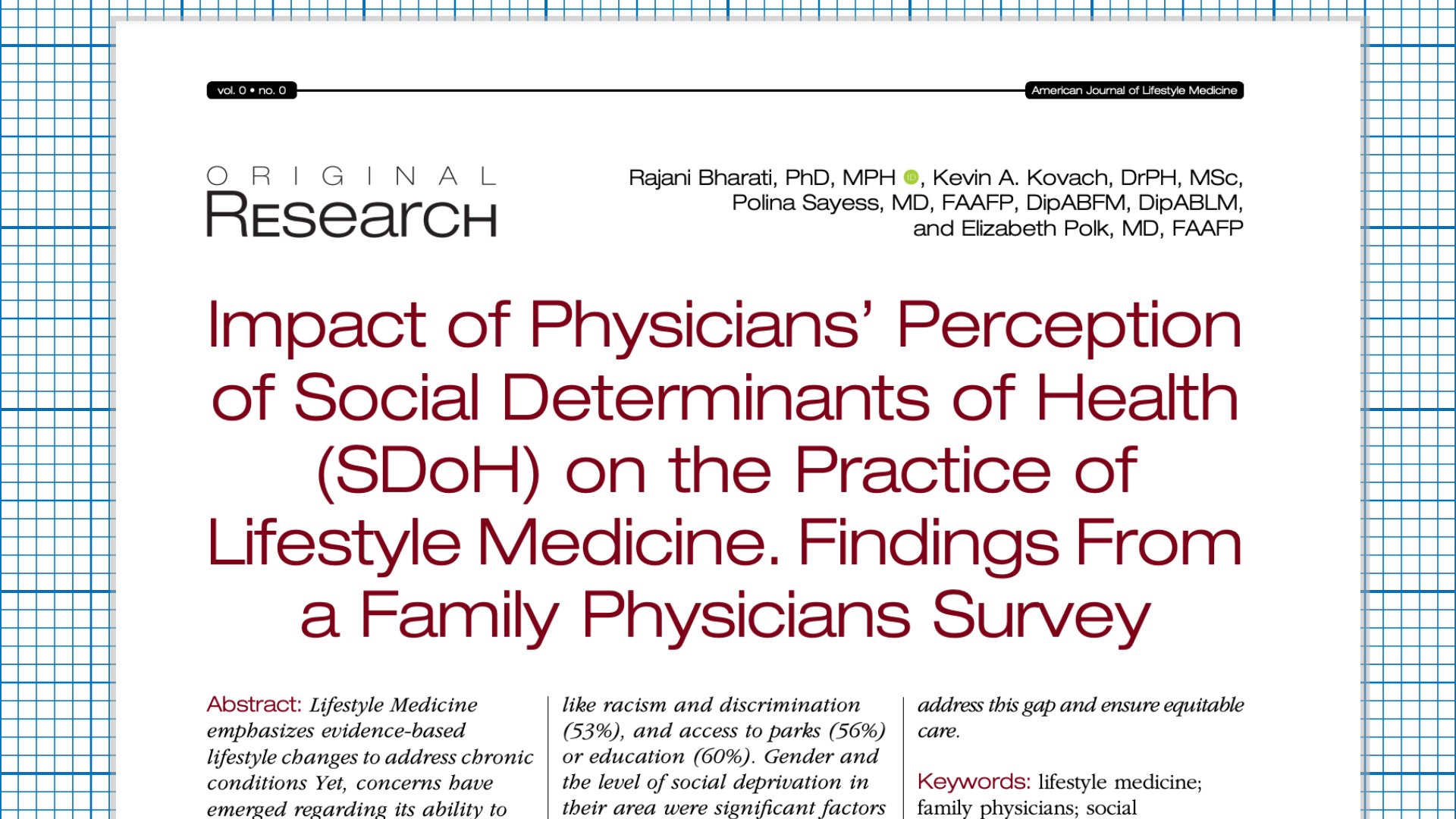Impact of Physicians’ Perception of Social Determinants of Health on the Practice of Lifestyle Medicine
This new study, conducted by the American Academy of Family Physicians with grant support from Ardmore Institute of Health, underscores the importance of comprehensive education on social determinants of health, especially with a focus on community aspects, across all levels of medical training to ensure equitable care.
Abstract
Lifestyle Medicine emphasizes evidence-based lifestyle changes to address chronic conditions Yet, concerns have emerged regarding its ability to address broader social determinants of health (SDoH). This study examines how family physicians’ perceptions of SDoH relate to their use of lifestyle medicine competencies. This cross-sectional survey was administered to 5770 family physicians. Participants rated the importance of LM core competencies and the impact of community conditions on patient health. Data analysis involved descriptive statistics, factor analysis, regression models, and t-tests. This study encompassed 447 responses. The findings revealed that while respondents recognized the effect of certain SDoH, such as access to unhealthy food (89%), alcohol (86%), and tobacco (83%), they showed less awareness of factors like racism and discrimination (53%), and access to parks (56%) or education (60%). Gender and the level of social deprivation in their area were significant factors influencing respondents’ perception of SDoH impact. Additionally, those who valued and used lifestyle medicine core competencies were more likely to acknowledge the influence of SDoH on patient health. Our findings suggest that comprehensive education on SDoH, especially with a focus on community aspects, is crucial across all levels of medical training to address this gap and ensure equitable care.
“Family physicians in higher SDI areas may have more interest or involvement in SDoH, social justice, and health equity.”
Lifestyle medicine is a medical specialty that focuses on evidence-based, whole-person, lifestyle change to prevent, treat, and reverse chronic conditions. The 6 pillars of lifestyle medicine include (1) a whole-food, plant-predominant eating pattern, (2) physical activity, (3) restorative sleep, (4) stress management, (5) avoidance of risky substances, and (6) positive social connections. 1 Modifiable behavioral risk factors, such as tobacco use, poor diet and physical inactivity, alcohol consumption, and illicit drug use, account for the majority of preventable deaths, positioning lifestyle medicine as an essential approach to address the worldwide chronic disease epidemic.
However, some have questioned lifestyle medicine’s ability to promote behavior change on a large enough scale to impact population health meaningfully and have suggested that it may exacerbate health inequities. Critiques also viewed that Lifestyle medicine is focused on individual-level care and does not sufficiently prioritize addressing the upstream social determinants of health (SDoH). The SDoH are the conditions in the environment where people are born, grow, live, work, and age that affect individuals’ health, functioning, and quality of life outcomes and risks. These conditions can be related to economic stability, access to and quality of education, access to and quality of healthcare, the neighborhood and built environment (physical surroundings such as buildings, parks, infrastructure, and transportation systems), and social and community context. The community-engaged lifestyle medicine framework, which incorporates community engagement, cultural competency, and multilevel and intersectoral approaches, may be a model that can expand the impact of lifestyle medicine into at-risk populations and avoid the potential unintended consequences of exacerbating health inequities. This model is more in line with behavioral science, which indicates that behavior is “regulated” by social conditions, and it is difficult to change behavior through individual-level interventions alone.
Family physicians are an important group of lifestyle medicine practitioners, as evidenced by the popularity of lifestyle medicine continuing medical education (CME) courses among family physicians. Between 2021 and 2023 alone, approximately 1650 family physicians attended the Lifestyle Medicine CME course offered by the American Academy of Family Physicians (AAFP), according to AAFP internal records. Previous research shows that family physicians value interventions that address the upstream SDoH, and they could be valuable champions for connecting traditional lifestyle medicine approaches with more community-engaged approaches. However, previous research also indicates that a lower proportion of family physicians are engaged in community-based lifestyle medicine competencies, and the gap between perceived value and engagement is greater compared to clinical-based lifestyle medicine competencies. Increasing family physicians’ engagement in these community-based lifestyle medicine interventions may be an important step towards enacting approaches to behavior change that are more in line with behavioral science. The purpose of this study is to begin to examine why these gaps exist by analyzing the relationship between family physicians’ perceptions of the impact of SDoH on their patients and their perception and use of lifestyle medicine core competencies. The objectives of this study are to:
Explore how sociodemographic and community factors are associated with family physicians’ perception of the importance of the SDoH on their patients’ health.
Explore how family physicians’ perception of the importance of the SDoH on their patients’ health is associated with their perception and use of lifestyle medicine core competencies.

